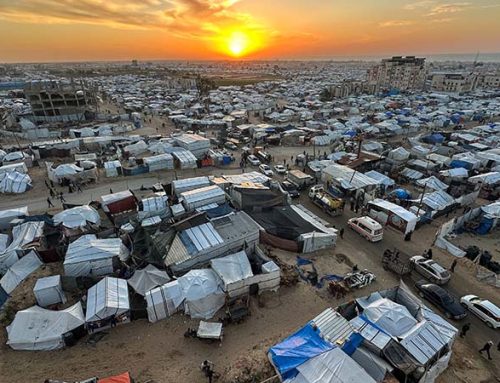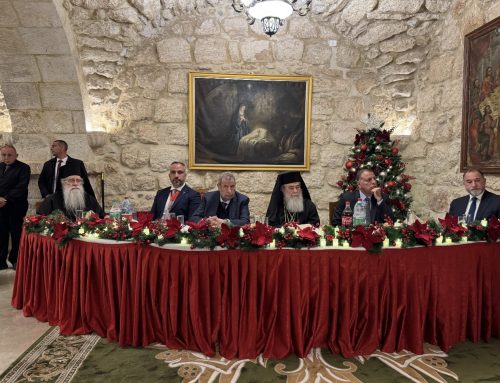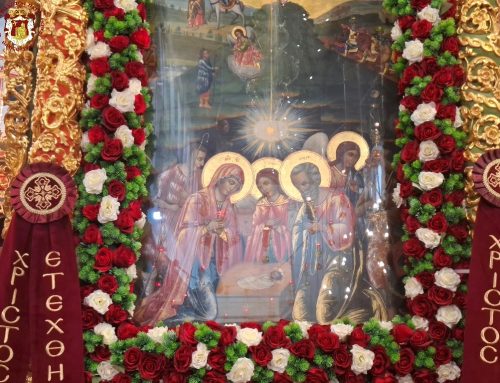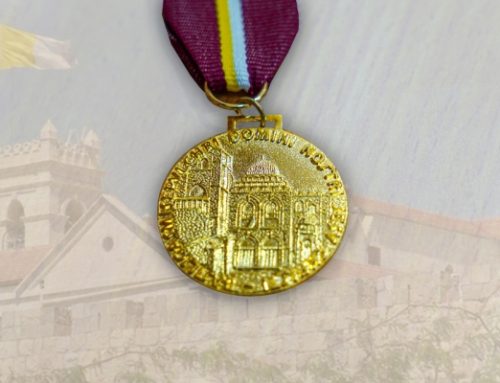Archbishop of Canterbury Justin Welby appealed for more help for Christians to stay in the Middle East in spite of war and growing Islamist extremism.
Archbishop Welby spoke out while meeting Iraqi refugees in Jordan, where many Iraqi and Syrian Christians have fled, on the first leg of his pilgrimage to the Holy Land.
Archbishop Welby said Christians ‘are the past in the Middle East, they are the present and they must be the future’.
Two dozen refugees from Iraq prayed with the Archbishop at the Anglican church of St Paul in Amman, before asking him to help them leave the Middle East.
Archbishop Welby also met Jordan’s King Abdullah II and visited the Zaatari refugee camp.
The Zaatari refugee camp is home to some 80,000 people who have fled war-torn Syria, and is now the fourth largest city in Jordan. Archbishop Welby pointed out that ‘many refugees here are traumatised from Syria, and many suffering respiratory problems from the dust and wind’.
The Middle East is home to the oldest Christian communities in the world, but large numbers have fled in recent years to escape war and Islamist extremism.
At Amman’s Church of the Redeemer yesterday evening, bells rang out in welcome of the archbishop for an Evensong prayer service with about a hundred Jordanian, Iraqi and other Christians.
At the church, Welby invoked the Ten Commandments in a plea for more support for refugees from the Middle East, including Christians.
One Christian from Mosul, Bassam Adam, said he fled Iraq ‘with nothing but the clothes on our backs’ after so-called Islamic State staged its incursion on the city in 2014.
Adam said intolerance is deeply rooted in Iraq, ‘even in the minds of the kids’ and that Iraqi Muslims would throw stones at Christian school buses.
‘They consider us as a second-class people,’ he said. ‘How could we live together?’
Today, the Archbishop reflected on Facebook about his Jordan visit: ‘The Iraqi Christians I met say they feel the world has forgotten them, because the focus of the international community is now on Syria. Iraqis, they say, are at the bottom of the list when it comes to resettlement or support,’ he said. ‘One woman told me that she can endure persecution as a Christian because the Bible teaches that that is to be expected. What she did not expect was that the worldwide church would ignore their plight.
‘As we left I prayed for God’s protection over their community. And I prayed that we, the Western Church, would be stirred up to do something. We are human beings with our persecuted brothers and sisters. We must embrace them. As well as supporting the communities in England that have already received migrants, we need to keep on welcoming those who are homeless. We must also find ways of improving things in this region. We do not want a Middle East without Christians. Christians have a long history in the Middle East, they are still here, and they surely must be part of its future.’
Britain’s ambassador to Jordan, Edward Oakden, who also attended the service, told the Associated Press: ‘Throughout human history there have been countless triumphs of the human spirit, this will be another one. The Archbishop’s visit helps create that sense of future, hope and possibility.’
Archbishop Welby stayed in Jordan last night and today will visit one of the sites where Jesus is believed to have been baptised on the banks of the Jordan River. He will then cross the Allenby Bridge and visit Holy Sites in Jerusalem, including the Western Wall with the Chief Rabbi, Ephraim Mirvis.
The Archbishop and the Chief Rabbi will then together visit the Yad Vashem Holocaust memorial museum before meeting with the Chief Rabbinate of Israel.
This evening, Archbishop Welby will attend a reception with interfaith leaders in Jerusalem.
Source: Christian Today






